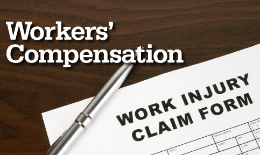A New Jersey court struck down last week a claim by a former bank employee who sought workers’ comp disability benefits for what the claimant described as a psychological illness caused by occupational stress.
The Superior Court of New Jersey, Appellate Division, ruled on the case on June 26, affirming the workers’ compensation judge’s earlier written opinion.
Court: Stressful Condition Must Be ‘Objectively Verified’
According to court documents, the petitioner, Jeanne Knight, was hired in 1990 as a teller by Audubon Savings Bank in New Jersey, and was promoted in 1999 to her final position as a mortgage processor. But the petitioner said her supervisor repeatedly screamed at her, imposed an excessively burdensome workload, and generally made her job so stressful that it resulted in a compensable psychiatric claim.
She had received several annual written performance evaluations completed by the supervisor, which she characterized as negative, both during her testimony and when interviewed by the expert witnesses. However, the evaluations that the bank submitted to court as evidence ranged mostly from “good” to “very good” categories.
Knight said she decided to leave her employment in February 2010 after what she described as a negative 2009 review. On her last day of work, she left the office saying there were problems with her mother’s hospice care. She said that when she called the office two days later, the supervisor screamed at her on the phone about a problem regarding a customer’s insurance policy.
Knight filed for disability benefits but she denied that she separated from her employment because of her mother’s grave condition, claiming she left because of the psychiatric stress caused by the supervisor’s ill treatment of her. The petitioner presented three fact witnesses in support of this position during the trial.
But witnesses offered varying accounts of what may have taken place at the workplace. They agreed that the petitioner and the supervisor didn’t get along. But the witnesses couldn’t corroborate the petitioner’s claim, noting that they didn’t actually see the petitioner getting yelled at — even though one witness admitted he himself had been yelled at by the supervisor. The employer’s witnesses disputed much of the petitioner’s testimony.
The petitioner’s physician had prescribed anti-anxiety medications for petitioner’s job-related anxiety in 2003 or 2004. Later, in 2010, a psychiatrist described the petitioner’s psychiatric disabilities as including adjustment disorder with mixed anxious and depressive features.
The workers’ compensation judge rendered his written decision in July 2011. The judge did not find the petitioner to be a credible witness, according to the court’s ruling. In addition, the judge noted that petitioner did not provide medical evidence that objectively stressful work conditions caused her psychiatric diagnosis.
In sum, the testimony and the evidence produced in this case did not provide the court with credible evidence upon which it can find that it was “objectively verified work stressors” that “materially caused” or were “to a material degree a contributing factor” in the petitioner’s psychiatric reaction, the courts ruled.
The case is KNIGHT v. AUDUBON SAVINGS BANK, No. A-0173-11T1, Superior Court of New Jersey, Appellate Division.
Was this article valuable?
Here are more articles you may enjoy.


 Florida Engineers: Winds Under 110 mph Simply Do Not Damage Concrete Tiles
Florida Engineers: Winds Under 110 mph Simply Do Not Damage Concrete Tiles  BMW Recalls Hundreds of Thousands of Cars Over Fire Risk
BMW Recalls Hundreds of Thousands of Cars Over Fire Risk  Insurance Issue Leaves Some Players Off World Baseball Classic Rosters
Insurance Issue Leaves Some Players Off World Baseball Classic Rosters  Florida’s Commercial Clearinghouse Bill Stirring Up Concerns for Brokers, Regulators
Florida’s Commercial Clearinghouse Bill Stirring Up Concerns for Brokers, Regulators 

